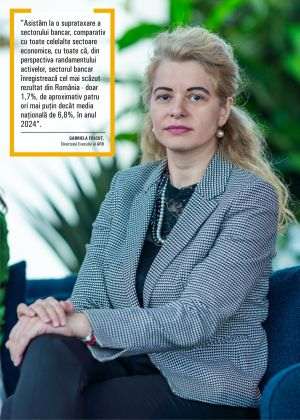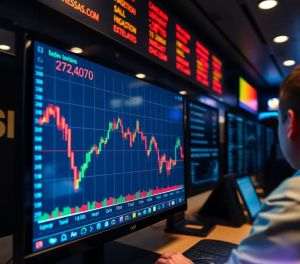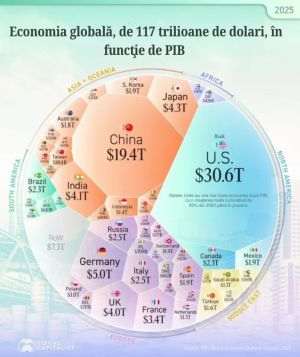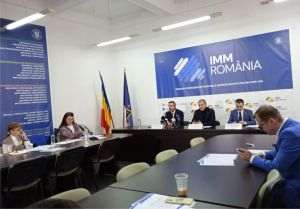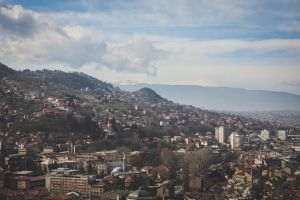Reporter:How do you see the scandal from the Industries Commission of the Chamber of Deputies, concerning Emergency Government Ordinance 64/2016 on the liberalization of natural gas starting with April 1st?
Gabriel Purice: I did not participate in the works of the Commission for Industries and Services of the Chamber of Deputies, as the Romanian Commodities Exchange was surprisingly not invited, even though we are one of the two operators of centralized systems on the Romanian natural gas market. At any rate, we don't see it as a scandal, just a natural disagreement between the executive power, on one hand, which wants to increase the efficiency of the activities on the natural gas market and the political power on the other, which promotes consumer protection policies.
From the point of view of the BRM, placing the natural gas market on real foundations is the most correct solution, as the world's recent economic history has proved that the subsidizing of energy products on a national level (see countries such as Russia, Egypt, India, Venezuela) has led to brutal economic recessions, underdevelopment or at best economic stagnation.
A similar mistake was made in Romania in the 90s, when we had strong social protection policies, which have maintained low prices of energy products, and also kept operational important industrial branches (the machinery, metallurgical, chemical and mining industries). These policies have proven to be unsustainable, as demonstrated by the current drastic cut of these industries, which represent only a fraction of what they were. On the other hand, countries such as Hungary, Poland and Bulgaria have taken radical steps, and the results are now clearly visible.
Reporter: What effects do you feel the liberalization of the market starting on April 1st will have?
Gabriel Purice: A potential liberalization of the natural gas market will have as its initial effect a slight price increase, but in the end will lead to the placing of the entire industry on real economic foundations. On the other hand, however, the continuation of uncoordinated public subsidy policies can also lead in the future to the appearance of situations like ELCEN, RADET or CE Oltenia.
Our opinion is that approximately 20-25% of the Romanian population really needs the price of natural gas to be subsidized, while the rest can bear its liberalization. We feel that subsidies have to be granted directly to the clearly disadvantaged classes, as part of an organized welfare system, built on clear eligibility criteria. The liberalization of the price of natural gas may also increase in the future the awareness of the public when it comes to the need to save energy.
We also want to remind the fact that in the past there have been serious discussions about the effects which the liberalization of fuel and electricity prices could have on consumers. In spite of that, the gradual liberalization in these two cases has not had significant effects on the population, in that manner (as an example, the vehicle traffic in Bucharest is a relevant indicator).
Reporter: How do you see the proposal for the liberalization of the gas market starting with April 1st, on the condition of all the gas volumes being traded on the commodities exchange? What effects do you think such a provision would have?
Gabriel Purice: The Romanian Commodities Exchange has never supported or agreed to making it mandatory to trade all the natural gas contracts on the exchange. At the end of 2016, when we have been consulted on this issue by the Ministry of Energy (unlike 2017 when the opinion of the BRM was deemed unimportant), to support the takeoff of the natural gas market, we have agreed to the trading of an initial percentage representing approximately 15-20% of the total volume of natural gas and that is only for a limited period of time.
The BRM thinks that the market operators must offer advantages to the market participants and in doing so incentivizing them to work through the exchange. A radical measure which would require 100% trading of the volume of natural gas through the stock market wouldn't be the most appropriate.
Given the European practice in the field as well, we feel that it is normal to maintain the bilateral trading contracts. By making it mandatory to trade those through exchanges, Romania would become the only EU member state with such a regulation, both for the natural gas and electricity market.
Reporter: Could the BRM be ready to take over part of these transactions?
Gabriel Purice: Through the multilateral trading structures and the instruments it makes available, the Romanian Stock Exchange is ready, at the present time, to cover any transactions needed on this market. I want to mention that over the course of last year, we have reorganized the structure of the BRM market into standardized products (contracts with physical delivery for the next day, week, month, quarter, season and calendar year) and into non-standardized products (OTC). At the same time, we have also developed a platform for the trading of natural gas with a payment in foreign currencies (USD) and we intend to offer soon the full guarantee of trades as a result of operating through a central counterpart. For some of these initiatives, we await the final approvals from the National Energy Regulation Authority (ANRE) in order to launch them.
Also, by the end of this year, we want to launch futures transactions in order to cover risks, and in that regard the regulations, procedures and the operational form of the BRM is currently in the last stages of approval at the Financial Oversight Authority (ASF).
Reporter: What was the evolution of natural gas transactions at the BRM in the last year?
Gabriel Purice: In 2016, the BRM had a trading volume of 15,000,000 MWh on the natural gas ring, which we consider important and which surpasses other regional markets (Hungary, Poland, Bulgaria). Compared to 2015, the traded natural gas volume increased over 550%.
Reporter: What are your estimates concerning the trading of natural gas on the BRM, this year? What expectations do you have after a potential liberalization starting with April 1st?
Gabriel Purice: For the current year, we are optimistic and we estimate an increase in the trading volume of at least 10-25%, following the liberalization of the country and the integration of the specialized instruments developed by the BRM that were previously mentioned.
Obviously, the liberalization of the price of natural gas, if it gets done, will have a positive influence in terms of the evolution of transactions, and we are also convinced that it will place the market mechanisms on a real economic foundation.














